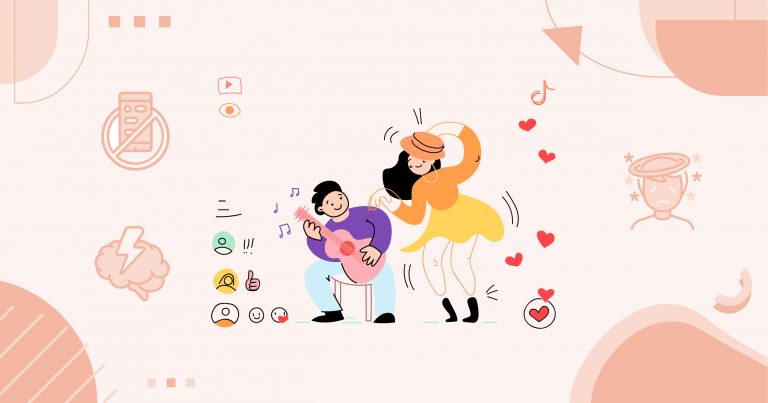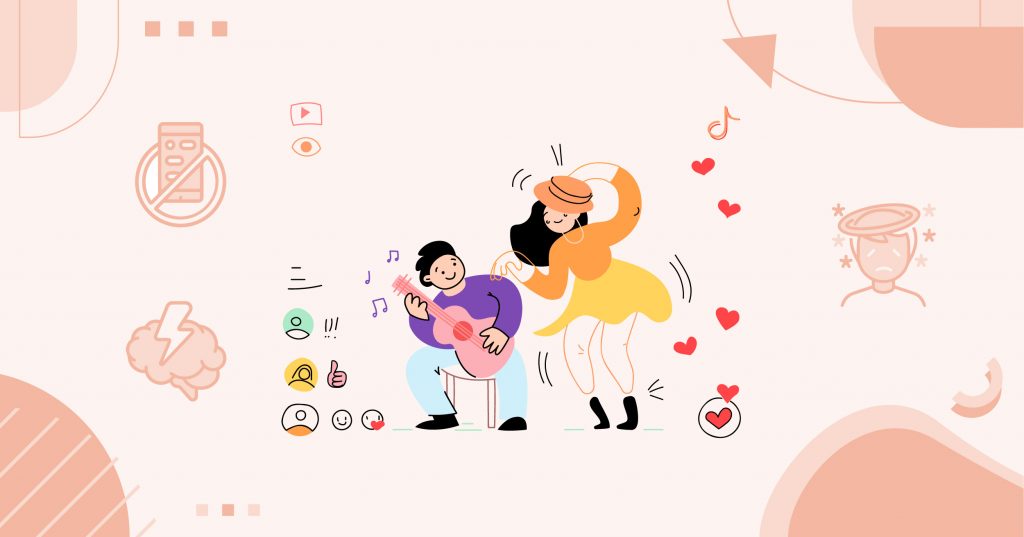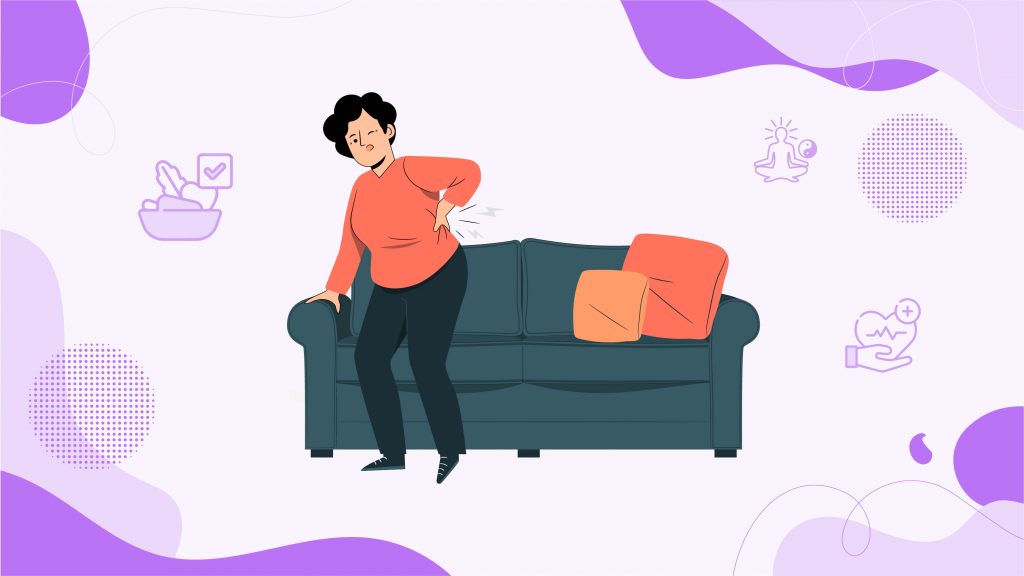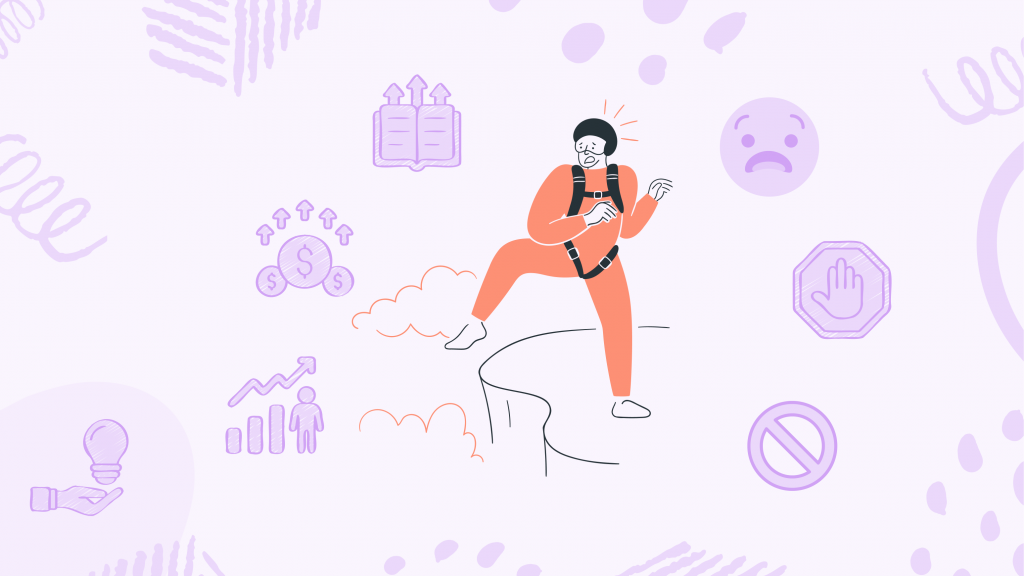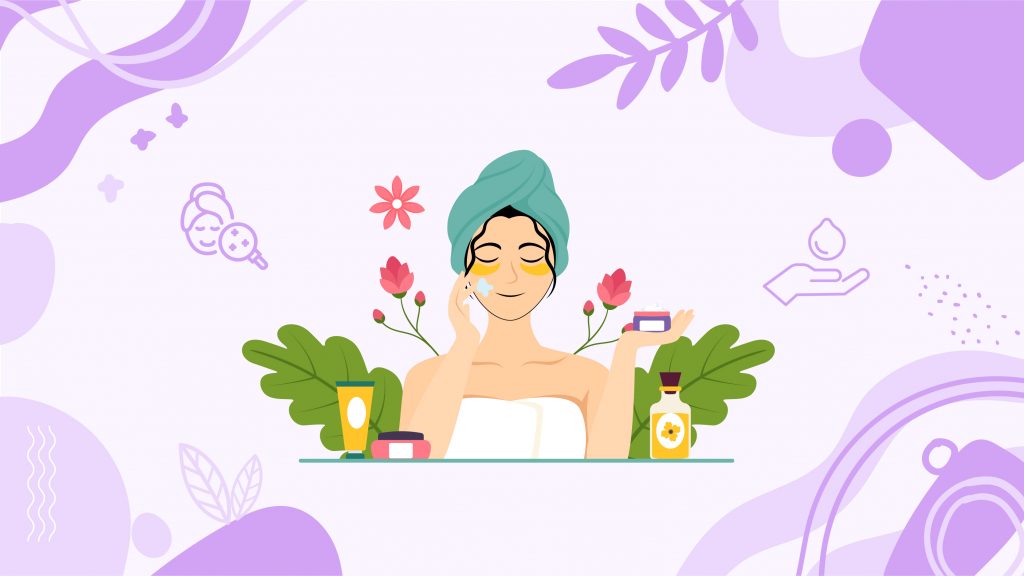Social Media Addiction Symptoms
Ever feel like you’re on a never-ending digital merry-go-round? You’re not alone. Today’s world has us Millennials hooked, 24/7. From the buzz that wakes us up to the last meme we check before lights out, we’re perpetually plugged in. It’s like being on a digital leash that just keeps getting tighter, packing our days with stress, scattering our focus, and leaving us feeling totally swamped.
Imagine this: You’re at a breathtaking sunset, but instead of soaking it up, you’re fumbling to capture the perfect Instagram shot. Or you’re trying to unwind, but your phone keeps pinging with notifications, demanding your attention—even in your downtime. It’s exhausting, right?
This digital overload isn’t just tiring; it’s literally reshaping our interactions with the world and ourselves. We’re becoming experts at multitasking, but at the cost of truly being present. It’s tough to dive deep into life’s experiences when you’re constantly distracted by the next ping or post. The digital world demands so much of our energy, it often leaves little room for real relaxation or deep mental recovery.
So, what’s a digitally overwhelmed Millennial to do? Recognizing the problem is a start, followed by finding those precious moments to just unplug and breathe. After all, life’s too short to view through a smartphone screen all the time, isn’t it?
Pros and Cons of Social Media on Mental Health
Ever wondered why it feels like our brains just can’t keep up with the digital world’s demands? Here’s the scoop from a neurological standpoint: our brains weren’t built for this constant barrage of information. The frequent interruptions and the need to rapidly switch attention can actually lead to changes in the brain, shrinking the gray matter in areas crucial for focus and information processing. Yes, too much screen time can literally change the structure of your brain!
But wait, there’s more science behind why we’re glued to our screens. Ever catch yourself compulsively checking for likes or notifications? That’s your brain’s dopamine circuits working overtime. Social media platforms are designed to exploit this by creating dopamine-driven feedback loops, rewarding interactions with likes and shares, which can make stepping away from the screen feel surprisingly tough.
And then there’s the issue of how our gadgets mess with our body chemistry. Those constant pings and buzzes? They trigger a release of cortisol, the body’s stress hormone, which can keep us feeling on edge and anxious. Not to mention, the blue light from our screens can mess with our melatonin production, making it harder to fall asleep and stay asleep. This disruption in sleep can leave us moody and impair our cognitive functions.
So, when we talk about feeling overwhelmed by digital overload, it’s not just about needing a break from the buzz. It’s about understanding and managing the profound impacts this connectivity has on our brain and body. It’s fascinating, really, how our high-tech habits are reshaping our neurological pathways, isn’t it?
Subscribe to newsletter
Get your Gut Health Starter Guide right now.
Elevate your Tuesdays with practical, science-backed wisdom propelling you forward on your gut health journey.

What to do Instead of Social Media
- Embrace Digital Detox: Set aside specific times each day or week when you disconnect from all digital devices. Use these breaks to engage in activities that nourish your mind and body, such as reading a book, taking a walk, or practicing a hobby. This not only helps reduce digital fatigue but also recharges your mental batteries.
- Practice Mindful Meditation: Incorporate mindful meditation into your daily routine. Start with just a few minutes each day, focusing on your breath and observing your thoughts without judgment. This practice can help decrease stress and anxiety, improve attention, and increase your overall sense of well-being.
- Create Mindfulness Cues: Use everyday activities as cues to practice mindfulness. For example, every time you eat, take a moment to really taste your food and appreciate its flavors and textures. Or, while walking, pay attention to the sensations in your feet and the sounds around you. These small practices can help bring you back to the present moment throughout the day.
- Set Boundaries with Technology: Be intentional about how and when you use technology. For instance, avoid checking your phone first thing in the morning or right before bed. Consider turning off non-essential notifications to minimize distractions and make conscious choices about the media you consume.
- Engage in Reflective Journaling: Keep a journal to reflect on your daily experiences and feelings. Writing can help you process your thoughts and reduce anxiety by clearing your mind of persistent worries or stressors. It also provides an opportunity to reflect on your digital habits and their impact on your mental health.
A Digital Awakening
Alex, a 28-year-old graphic designer, found herself constantly swamped by the digital demands of her career—from responding to client emails to managing social media accounts and keeping up with the latest digital trends. This never-ending connectivity began to erode her mental health, leaving her anxious, sleep-deprived, and scatterbrained.
In a moment of clarity, Alex realized something had to give. She decided to introduce mindfulness into her digital-heavy lifestyle. Starting with a small but powerful change, she established a morning routine that involved meditating for ten minutes before even glancing at her phone. This helped her begin her day centered and calm, rather than jumping straight into digital chaos.
Alex didn’t stop there; she carved out digital detox periods during her weekends, dedicating this time to getting outdoors and engaging in real face-to-face interactions with friends and family. To keep track of her journey and maintain her commitment, Alex turned to journaling, using it as a reflective tool to note both progress and setbacks.
These mindful practices gradually transformed Alex’s life. “The shift was remarkable,” she shares. “My mind felt clearer, and my creativity soared. More importantly, I found joy in my work and personal life again. The mindfulness techniques helped me manage my digital intake without feeling overwhelmed.”
Alex’s personal vignette highlights how she regained control: “Mindfulness changed my relationship with technology. I no longer feel enslaved by my devices. Now, they serve me in ways that enhance my well-being. This newfound balance has not only boosted my mental health but also my productivity and creativity at work.”













